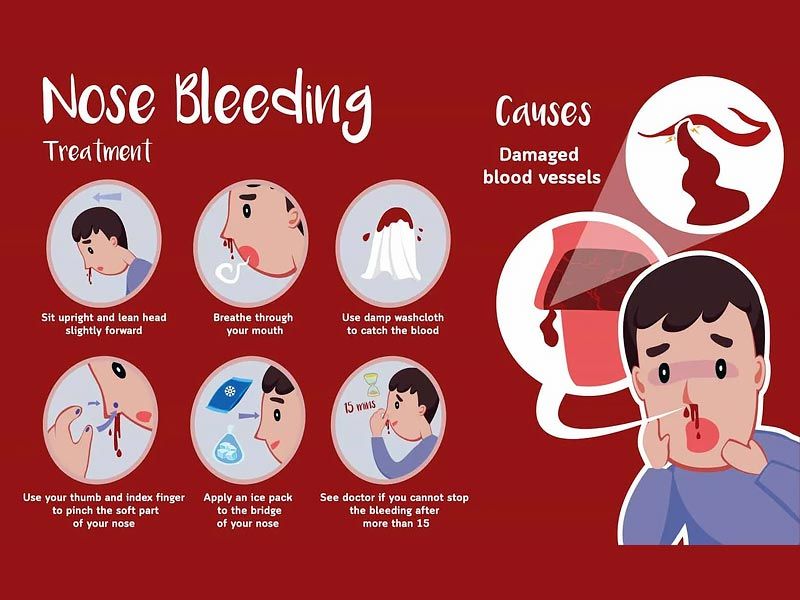Nosebleeds occur frequently. Although they could be frightening, they rarely signify a significant medical issue. Numerous blood vessels can be found in the nose’s front and back, close to the skin’s surface. They bleed easily and are extremely delicate. Both adults and children between the ages of three and ten frequently experience nosebleeds.
Nosebleeds can be of two types. When blood vessels in the front of the nose burst and bleed, it is known as an anterior nosebleed.
The rear or deepest part of the nose is where a posterior nosebleed happens. Blood runs down the back of the throat in this instance. Bleeds from the posterior nose can be harmful.
Causes of nosebleeds
nosebleeds have a variety of causes. Rarely is a sudden or infrequent nosebleed dangerous. If you experience nosebleeds frequently, there may be a more serious issue.
The most frequent cause of nosebleeds is dry air. Nasal membranes are tissues found inside the nose, and they can become dry from living in a dry climate or using a central heating system.

Crusts form inside the nose as a result of this dryness. Crusting could cause irritation or itching. Your nose may bleed if it is picked or scratched.
Nasal membrane dryness and bleeding can also result from using antihistamines and decongestants for allergies, colds, or sinus issues. Nasal blowing on a regular basis is another reason for nosebleeds.
Other typical reasons for nosebleeds consist of:

something foreign lodged in the nose
chemical irritants allergic response nose injury repetitive sneezing nose picking cold air upper respiratory infection
Also read: 5 Nutritious Tea that are good for your stomach
large aspirin dosages
Most nosebleeds don’t need to be treated by a doctor. However, if your nosebleed persists for more than 20 minutes or follows an injury, you should see a doctor. This could indicate a more serious posterior nosebleed.
A nosebleed can result from a punch to the face, a car accident, or a fall. After an injury, nosebleeds may be an indication of internal bleeding, a fractured skull, or a broken nose.
Diagnosing a nosebleed
When you visit a doctor for a nosebleed, the physician will examine you physically in order to identify the cause. Your nose will be examined for indications of foreign objects. Your medical history and current medications will also be questioned.

Inform your physician of any new injuries and any additional symptoms you may be experiencing. The cause of a nosebleed cannot be ascertained by a single test. To determine the cause, your doctor may, nevertheless, order diagnostic tests. Among these tests are:
nasal endoscopy partial thromboplastin time (PTT), a blood test that measures how long it takes for your blood to clot, and complete blood count (CBC), a blood test to check for blood disorders
CT scan of the nose and facial X-ray

























